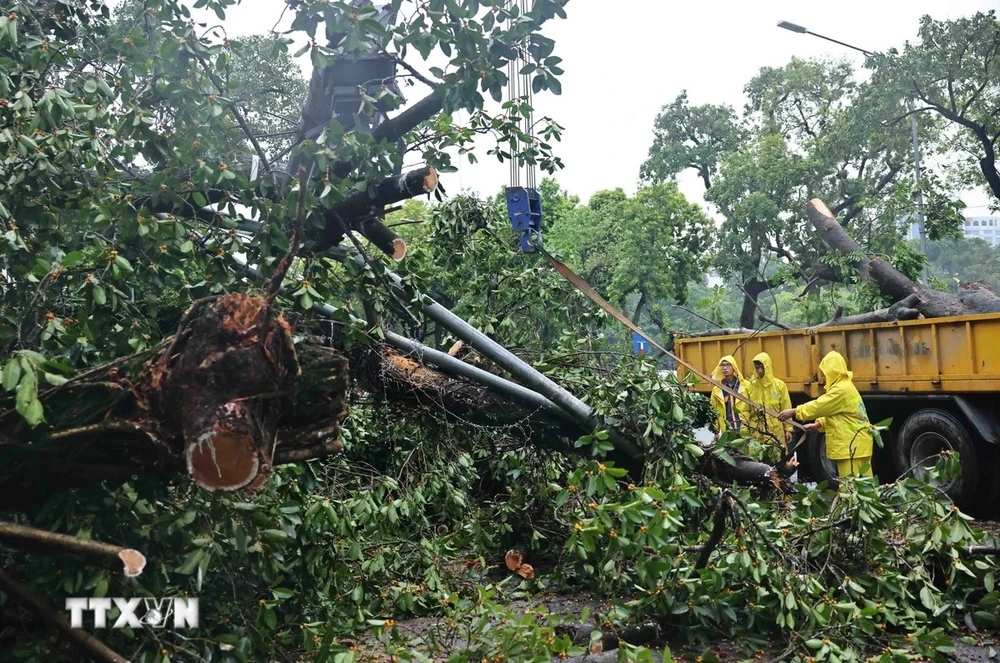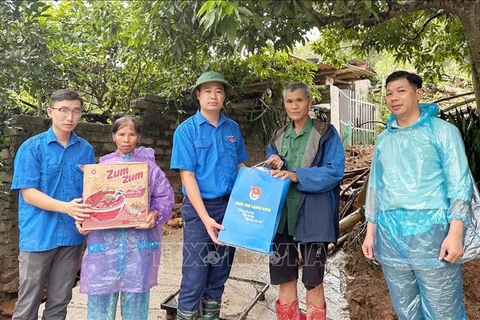
Hanoi (VNA) - Floods have directly affected agricultural production, industry, tourism, and transport as rising waters impact material infrastructure.
According to a report by the General Statistics Office, the socioeconomic situation in the first eight months of this year maintained its positive trend and recorded many important outcomes, creating favourable conditions to hit growth targets set for 2024.
However, heavy losses cause by Storm Yagi and its subsequent natural calamities are adversely impacting every aspect of the social life. Do Thi Ngoc, Deputy Director General of the General Statistics Office, recently granted an interview to the VietnamPlus on the topic.
Ngoc said the losses caused by the super storm to northern mountainous localities are huge, and they are not yet fully accounted for. The devastation will have direct impact on the growth of several northern localities and the whole country in the second half of September and Q4.
The whole country is striving to overcome the consequences of the storm, quickly stabilising people’s lives, and restoring business and production activities so as to fulfill the targets of socioeconomic development in 2024.
Maintaining Macroeconomic Stability
Taking into consideration the 8-month socioeconomic situation of the country, the official said it maintained a positive trend and recorded important outcomes.
In addition, foreign direct investment was a silver lining in the cloud of the declining global investment. Revenue to the State budget also saw a relatively good increase thanks to the positives in business and production.
Besides the positives, there were also negatives such as the hot weather in the Mekong Delta and the long torrential rains in the north, worsened by the complex development of diseases in animal husbandry.
The rise of the Industry Production Index (IIP) and the growth of several key industries over recent months has slowed while the consumer price index rose year on year, thus worsening inflationary pressure.
Stabilising the economy in the aftermath of the floods
To cope with the situation, ensuring social security and the life of the flood victims, and developing the economy in the rest of the year, Ngoc said first, the localities hit hard by the storm must proactively minimise the losses to the lowest level. They should implement the Government’s direction on the preparedness against natural calamities. Special attention must be paid to the supply of food and other essentials to the flood victims, the official said.

Secondly, macroeconomic stability must be maintained, inflation controlled, and major balances of the economy ensured. Macroeconomic management policies need to be coordinated in a close, effective, and rational way to maintain the growth of the economy.
Thirdly, efforts must be exerted to boost consumption, focusing on the domestic market while the trade promotion programmes must be effectively conducted.
Fourthly, export must be pushed up and import controlled.
Fifthly, ministries, sectors, and localities must have strong measures at hand so as boost the disbursement of public capital and attract high-quality foreign investment.
And sixthly, current policies on social security, labor and jobs must be effectively implemented, and rice supplied in a timely manner to support people in the areas hit by natural calamities and diseases./.






















